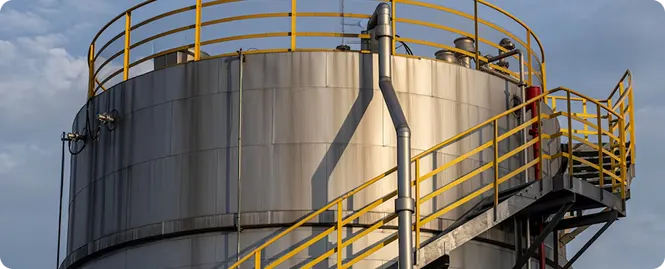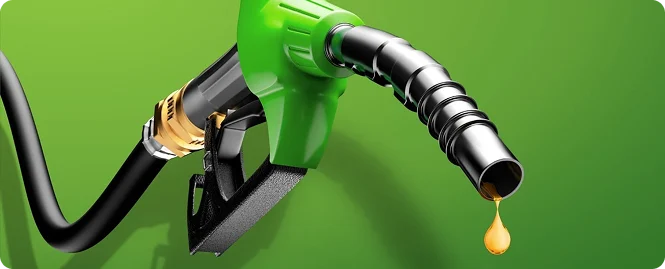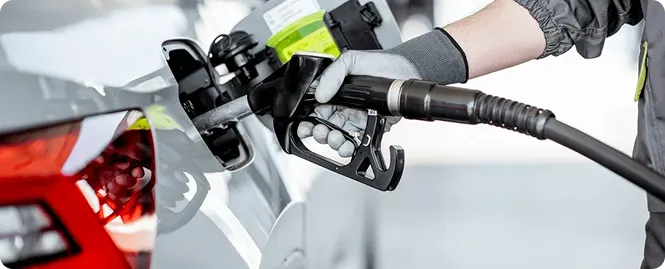How to Open a Gas Station in Florida
Table of Contents
Key Takeaways
-
Conduct a thorough market analysis to identify high-traffic areas with strong demand. Before selecting a site, consider competition, accessibility, and zoning laws.
-
A well-structured business plan helps attract investors and secure a business loan. It should cover startup costs, expected profit margins, and whether to operate independently or invest in a gas station franchise.
-
Register your business as a limited liability company (LLC) or other legal entity. Obtain the necessary permits, including environmental clearances. Secure general liability insurance to protect against risks.
-
Invest in gas pumps, fuel storage tanks, and safety equipment. Establish partnerships with fuel suppliers and convenience store product distributors to ensure smooth operations.
-
Use business credit cards for operational expenses, hire and train staff efficiently, and implement strategic marketing and promotion efforts to attract customers. Consistent maintenance and excellent customer service ensure long-term profitability.
The gas station industry in Florida is a lucrative business opportunity thanks to its booming tourism, growing population, and the constant need for fuel consumption. With the right location, strategic planning, and competitive pricing, gas station owners can enjoy steady profit margins from both fuel sales and convenience store purchases. Whether you choose to operate independently or invest in a franchise, this business offers long-term financial potential—but only if you start with a strong foundation.
Opening a gas station in Florida is not just about setting up gas pumps and selling fuel. It requires a thorough market analysis, legal permits, general liability insurance, and securing proper funding through a business loan or Small Business Administration (SBA) assistance. From business plan development to staff training and marketing, every step plays a very crucial role in ensuring success and sustainability. Understanding these key factors can either make or break your gas station business.
Step 1: Researching the Market and Location
Location is everything when it comes to opening a gas station in Florida. Look for high-traffic areas such as highways, busy intersections, and even commercial zones where the demand is consistent. Proximity to residential neighborhoods, convenience stores, and business hubs can further increase foot traffic. Consider accessibility, zoning laws, and future development plans to ensure your location is able to generate profit. A strategic spot not only drives higher profit margins but also enhances long-term business sustainability.
Conducting a market analysis is essential in order to understand what the local demand is. Analyze traffic patterns to ensure a steady stream of customers throughout the day. Check for nearby competitors—too many may limit your profitability, while a lack of gas stations could indicate untapped potential. Additionally, consider factors like fuel pricing, accessibility, and nearby attractions to position your business effectively. A well-researched location can set your gas station business up for long-term success.
Consumer preferences vary from region to region. Urban areas may demand electric charging stations, while coastal regions may require marine fuel. Understanding customer behavior—such as preferred fuel types, convenience store needs, and price sensitivity—helps tailor your offerings. Catering to these preferences enhances customer loyalty and maximizes profit margins over time.
Step 2: Creating a Business Plan
A well-crafted business plan is the foundation for running a successful gas station business in Florida. It provides a clear roadmap, helping you secure a business loan, attract investors, and manage operations effectively. Start by conducting a market analysis to understand local demand and competition. Define your target audience, pricing strategy, and revenue model. A strong business plan not only guides initial setup but also helps ensure long-term profitability and sustainability in this competitive industry.
Your business plan should include details such as financial projections, documented startup costs, operating expenses, and expected profit margins. A solid marketing strategy can also help attract more customers, whether it is done through promotions, loyalty programs, or digital advertising. Outline revenue streams such as fuel sales, convenience store profits, and car wash services. Additionally, specify business structure options such as limited liability companies (LLCs) and compliance with legal and environmental regulations to avoid setbacks.
A successful gas station business requires a vision beyond the initial launch. Outline long-term goals such as expanding locations, upgrading gas pumps, or adding electric vehicle charging stations. Consider diversifying revenue by offering convenience store services, car washes, or partnerships with local businesses. Regularly update your business plan to adapt to market trends and consumer behavior. A well-structured expansion strategy ensures sustained profit margins, increased brand recognition, and long-term success in Florida’s competitive fuel industry.
Step 3: Legal and Regulatory Requirements
Before opening a gas station in Florida, it's crucial to secure the right permits and licenses. You’ll need a business license, fuel tax registration, and environmental permits. Register your business as a limited liability company (LLC) or another legal entity. Additionally, obtaining general liability insurance is essential for protection. Compliance with state and federal laws ensures smooth operations and prevents legal issues. Working with local agencies and an insurance agent can help streamline the process.
Zoning regulations play a critical role in determining where you can start a gas station in Florida, ensuring they meet safety and environmental standards. Before construction, check with local authorities to confirm your location is zoned correctly. Some areas may have restrictions on proximity to residential neighborhoods or schools. Additionally, you’ll need permits for underground fuel storage, gas pumps, and signage. Staying compliant with local regulations helps avoid fines and delays in launching your business.
Strict environmental regulations govern fuel storage and its handling in order to prevent contamination and pollution. Gas station owners must ensure underground storage tanks meet state and federal safety standards, including leak detection systems and regular maintenance. Compliance with the Environmental Protection Agency (EPA) and Florida’s environmental laws is essential. Additionally, having pollution liability insurance safeguards against potential risks. Following these guidelines protects both the environment and the long-term viability of your gas station business.
Step 4: Securing Financing
Securing funding is a crucial step when opening a gas station in Florida. Financing options include business loans from banks or credit unions, Small Business Administration (SBA) loans, and private investors. Many gas station owners also explore franchise partnerships, which offer financial backing and brand recognition. Using business credit cards can help cover initial expenses. Understanding startup costs and choosing the right financing method ensures your business is well-funded and set up for long-term success.
To secure financing, you need a well-structured business plan that showcases your profit margins, revenue projections, and startup costs. Lenders and investors typically ask for detailed financial statements, which include income forecasts, expense breakdowns, and funding needs. Be prepared to present a strong case, demonstrating market demand and competitive advantages. Organizing these documents professionally increases your chances of approval, whether applying for a business loan, attracting investors, or seeking funding from a gas station franchise.
Florida offers various Small Business Administration (SBA) programs and grants to support entrepreneurs as they pave their way. Some initiatives provide low-interest loans, tax incentives, or startup funding specifically for gas station businesses. Additionally, minority—and veteran-owned businesses may qualify for specialized assistance programs. Researching these opportunities can help reduce startup costs and ease the financial burden of launching your gas station business. Taking advantage of government support can improve financial stability and increase long-term profitability.
Step 5: Selecting the Right Equipment and Suppliers
Equipping your gas station business with the right tools helps maintain smooth operations. Key equipment generally includes fuel dispensers, underground storage tanks, and point-of-sale (POS) systems for seamless transactions. Additionally, investing in security cameras, lighting, and digital signage further enhances safety and customer experience. Fuel monitoring systems help track inventory and prevent leaks. Ensuring that all equipment meets environmental compliance standards will help you avoid costly fines and keep your gas station business running efficiently.
Choosing a reliable fuel supplier will help you maintain consistent operations and deal with competitive pricing. When negotiating contracts, consider fuel pricing structures, delivery schedules, and supplier reliability. Many gas station owners go for branded fuel partnerships for marketing support, while others opt for more independent suppliers to maintain pricing flexibility. Carefully reviewing contract terms helps ensure favorable profit margins and steady fuel availability, allowing your gas station business to stay competitive in high-traffic areas.
Consider adding services like convenience stores, car wash, or auto repair services to your gas station to increase profit margins. Convenience stores attract more customers by offering snacks, beverages, and essentials. A car wash can generate additional revenue with minimal maintenance, while auto repair services cater to drivers needing quick fixes. Diversifying revenue streams helps your gas station business stand out in a competitive market and provides customers with a one-stop solution for their needs.
Step 6: Building and Designing the Gas Station
Building a successful gas station business requires careful planning of both the fueling area and convenience store layout. The design should prioritize efficiency, with well-placed gas pumps for easy access and a spacious forecourt for smooth traffic flow. Inside the convenience store, shelving should be organized to encourage impulse purchases. Adequate parking, clear signage, and a well-lit exterior enhance customer experience. Investing in modern, visually appealing designs helps attract more customers and boosts profit margins.
A properly designed gas station business must meet strict safety standards and building regulations. Fire suppression systems, spill containment measures, and proper fuel storage tank installation are fundamental for complying with the environment. Accessibility features, such as wheelchair ramps and wide entryways, ensure inclusivity. Following the local zoning laws and Florida’s building codes also helps in preventing legal issues and costly fines. Prioritizing safety and accessibility protects both your customers and business from potential risks.
A well-planned gas station layout improves customer convenience and maximizes sales. An open, well-lit forecourt, easy-to-navigate convenience store, and clear signage encourage repeat business. Strategically placing high-demand items near checkout counters boosts impulse purchases. An efficient layout enhances the overall customer experience, helping your station thrive in a competitive market.
Step 7: Hiring and Training Employees
A great gas station business starts with the right people. From friendly customer service attendants to skilled managers and maintenance staff, each role plays a key part in daily operations. Look for candidates with experience in convenience stores or gas stations, and prioritize strong communication skills. A thorough hiring process, including background checks and interviews, helps ensure reliability. The right team not only keeps things running smoothly but also enhances profit margins and customer satisfaction.
Well-trained employees make all the difference in creating a safe and efficiently run gas station business. Staff should be knowledgeable about fuel handling, emergency protocols, and environmental compliance to avoid risks. Customer service training helps ensure they provide quick, friendly assistance, keeping customers returning. Teaching employees how to use POS systems, manage inventory, and handle security procedures helps streamline operations. Quality training may eventually lead to better service, fewer mistakes, and a thriving business atmosphere.
Managing employees doesn’t have to be complicated – a smart scheduling system keeps shifts organized and ensures you have enough staff during busy hours. Digital payroll solutions make payments easy while handling taxes and compliance automatically. With an efficient system, you can focus on growing your business instead of juggling schedules.
Step 8: Marketing and Promotion
Getting the community excited about your gas station business can start with clever local advertising. Eye-catching banners, roadside signs, and grand opening discounts can draw in first-time customers. Radio ads and newspaper listings help spread the word, while direct mail flyers target nearby residents. Hosting an attractive launch event with free samples or discounts can further generate buzz. The goal is to make your gas station a go-to stop in high-traffic areas from day one.
A strong social media presence can take your gas station to the next level. Posting regularly about promotions, fuel discounts, and convenience store deals on social media will help keep the customers engaged and updated. Loyalty programs that reward repeat visits help encourage long-term customers. Partnering with food delivery apps or offering limited-time specials can also increase foot traffic. Combining digital marketing with in-store promotions ensures your gas station stands out in a competitive market.
Teaming up with local businesses and community groups boosts visibility and customer trust. Sponsoring school events, supporting charity drives, or offering discounts for nearby enterprises creates a good impression. A gas station business integrating into the local community becomes a trusted and reliable stop, helping drive consistent traffic and long-term success.
Step 9: Ongoing Operations and Maintenance
Successful gas station businesses rely on efficient daily operations. Keeping track of inventory, including fuel levels and convenience store products, ensures that you never run out of essential items. Implementing innovative fuel pricing strategies based on market trends and competitor rates helps maximize profit margins. Regularly monitoring cash flow and optimizing staffing during peak hours keep operations running smoothly. A well-organized gas station not only attracts more customers but also establishes a reputation for reliability.
A well-maintained gas station isn’t just about aesthetics and looks—it’s also about safety. Routine checks on fuel dispensers, storage tanks, and electrical systems help prevent hazards. Ensuring compliance with environmental regulations and fire safety laws protects your business from fines and liabilities. Clean restrooms, stocked supplies, and well-lit parking areas further enhance customer experience. By maintaining high standards of safety and cleanliness, your gas station business can become a trusted and preferred stop for drivers.
Customer feedback is a goldmine for growth. Encouraging reviews and addressing concerns promptly helps build loyalty. Whether it’s improving convenience store product selection, offering better promotions, or speeding up service, adapting to customer needs keeps your business ahead. A gas station business that listens and evolves is one that thrives.
Conclusion
Starting a gas station business in Florida requires planning ahead. Each step plays a crucial role, from choosing the right location and securing financing to effectively meeting legal requirements and marketing. Focusing on operational efficiency, customer service, and profit margins can further help you build a successful and sustainable business.
Running a gas station comes with risks—fuel spills, theft, equipment damage, and liability claims. Coverage plans such as general liability, commercial property, and workers' compensation insurance protect your investment from unexpected losses. A well-insured gas station business ensures financial security, compliance with regulations, and peace of mind for business owners.










